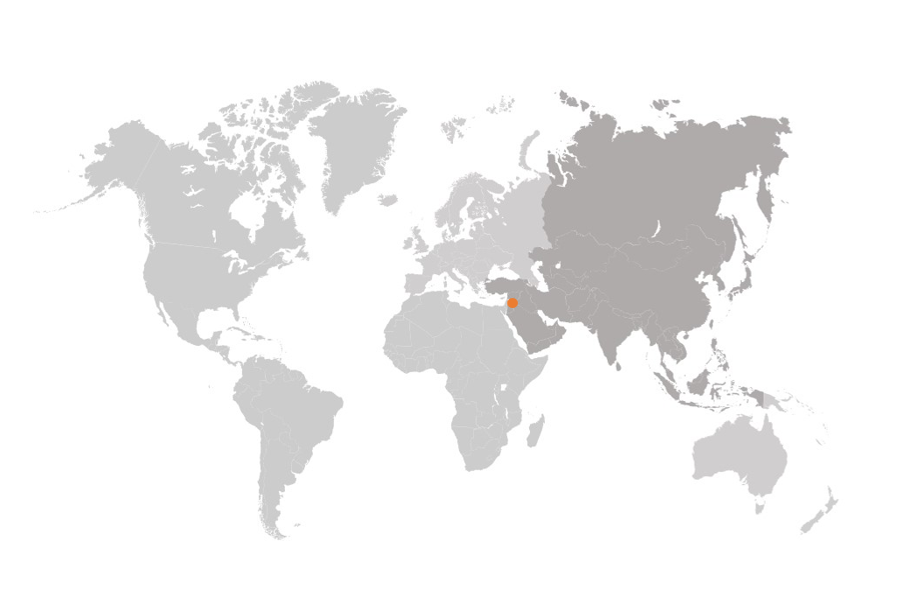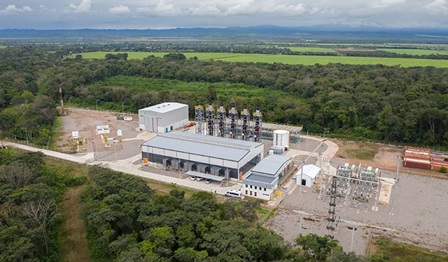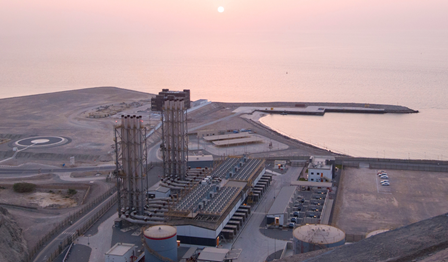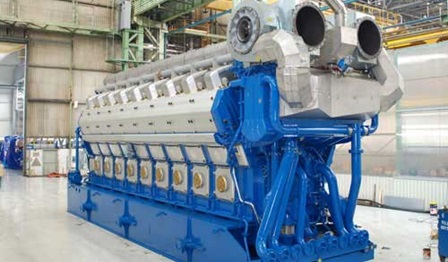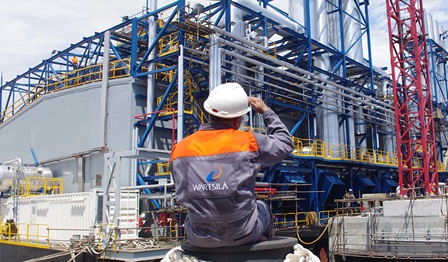To fulfil their power production agreement (PPA), the Jordan-based Nebras Power IPP4 / Jordan PSC needed to have their IPP4 power plant commissioned for gas operation within a tight schedule. “We originally had a contractual setup to have the engines commissioned to gas operation as soon as gas was available. Now we can realise our contractual obligations towards the grid operator,” says Khaled Salameh, Director Operations & Maintenance at Nebras Power IPP4 / Jordan PSC.
The IPP4 power plant, built in 2013 and located east of the Jordanian capital, Amman, runs on 16 Wärtsilä 18V50 dual-fuel engines with a total output of 241 MW. The plant with its tri-fuel engine technology was mainly designed for peaking operation. Initially, the plant was commissioned to run on HFO since gas was not available at the time. Currently plant is operating on gas mode as a peaking plant with average PLF at 22 %. “Once the set-up for natural gas supply was there, we wanted to commission the engines to gas operation,” says Mr Salameh.
Wärtsilä, the preferred choice
A full grid test of the plant could not originally be done since many of the tests needed to be done with gas as the main fuel. According to the PPA, the plant had to be commissioned on gas and grid tested within 25 days of gas becoming available.
This was a very short time frame, and Wärtsilä was chosen for the project since the company could not only do the commissioning, but also all the performance tests. “The commissioning was smooth and efficient. The work was finished in one month in the autumn of 2015. Wärtsilä worked hard, 24 hours a day, and all set schedules and performance requirements were met,” says Mr Salameh.
A more profitable power plant
Wärtsilä´s project team followed up on progress daily to ensure that the contractual milestones were fulfilled. The time challenge was solved through good co-operation between Wärtsilä and the Nebras Power O&M team. “We only had one party to follow up the progress with, since Wärtsilä had total responsibility for the full commissioning and testing.”
For Nebras Power, it is more convenient and profitable to run the IPP4 power plant on gas than HFO. This is mainly because the gas is delivered via pipeline to the power plant, whereas the HFO was delivered by trucks. The environmental impact from gas operations is also smaller than compared to HFO operation. The dispatch order for IPP4, as per the PPA, is higher on gas, hence the power plant is also more profitable. “Our power plant has now full operating flexibility. The most important benefit for us is that we are today able to fulfil our contractual obligations towards NEPCO, the grid operator, with regards to switching the plant to natural gas operation. And of course, that we now deliver on all the required performance guarantees of the plant,” says Mr Salameh.
After the commissioning work, Wärtsilä provided post-installation support, as a supervisor was on site monitoring the operations and providing support as necessary. In 2023, Wärtsilä and Nebras Power IPP4 / Jordan PSC signed a 4-year Parts predict agreement.
Would Mr Khaled Salameh then recommend other power plant owners with similar needs to take advantage of Wärtsilä’s expertise? “Yes, I would recommend that,” he concludes.


